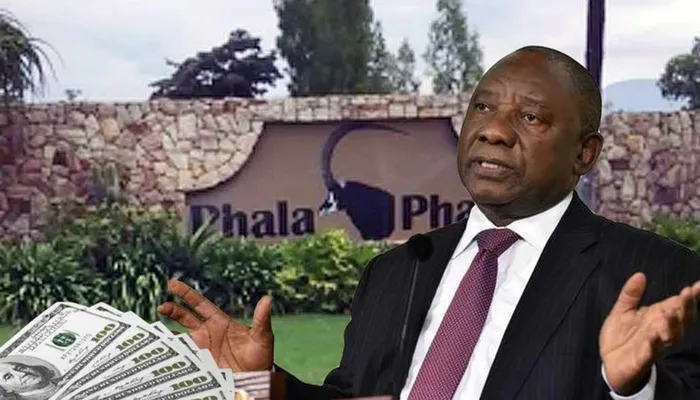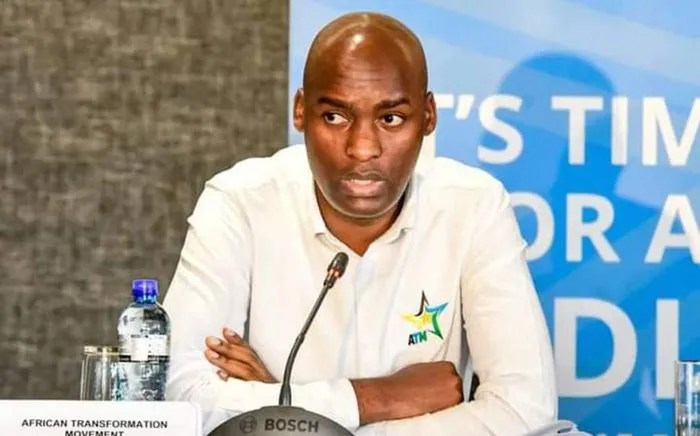
President Cyril Ramaphosa's Phala Phala farm in Limpopo is back on the spotlight after the (SAPS decision to clear Major-General Wally Rhoode, head of the Presidential Protection Services, of any wrongdoing.
Image: IOL
The African Transformation Movement (ATM) has condemned the South African Police Service's (SAPS) decision to clear Major-General Wally Rhoode, head of the Presidential Protection Services, of any wrongdoing in the controversial Phala Phala farm investigation.
ATM parliamentary leader Vuyo Zungula labelled the clearance a "blatant attempt by the ANC to destroy state institutions to protect their compromised deployees and officials".
He said the matter underscored growing concerns about accountability and transparency within the South African government.
Rhoode's clearance came after a disciplinary hearing related to findings made against him by Public Protector Kholeka Gcaleka two years ago.
Acting Police Minister Firoz Cachalia publicly confirmed that Rhoode was found "not guilty of any misconduct related to the findings of the Public Protector in that he conducted an illegal investigation in relation to the robbery at the Phala Phala farm of the President, Mr M C Ramaphosa, in Limpopo in February 2020".
Cachalia's statement further affirmed Rhoode's continued active status within the SAPS and his retention of the critical position as head of the Presidential Protection Service.
However, Zungula said that the Phala Phala matter would still be revisited.
“A police officer who conducted an illegal investigation and used state resources to unlawfully investigate theft of undeclared dollars in the President’s farm has been cleared of any wrongdoing,” Zungula said.
Zungula directly accusing the ruling party of a systematic “cover-up”.
“It is clear, the ANC will stop at nothing to cover up their wrongdoing,” saying there is a deep distrust of the ANC's motives and its perceived interference in state institutions.
ANC spokesperson Mahlengi Bhengu-Motsiri did not respond to questions sent on Sunday.
Gcaleka's report, which delved into allegations of misconduct by President Ramaphosa himself, specifically found that Rhoode was not authorised to investigate the burglary at the President’s farm.
The incident, which involved a substantial sum of undeclared foreign currency, was reportedly brought to Rhoode's attention by Ramaphosa, leading to an alleged "off-the-books" investigation.
Gcaleka concluded that Rhoode's actions were improper and lacked the necessary authority to launch such an investigation. She explicitly dismissed his assertion that he was merely conducting a threat analysis, emphasising the illicit nature of his involvement.
As part of her remedial action, Gcaleka had instructed then police minister Bheki Cele to acknowledge findings of maladministration and improper conduct against the SAPS, particularly concerning the alleged improper conduct of police officers within the Presidential Protection Services.

African Transformation Movement leader Vuyo Zungula says the ANC is covering up the Phala Phala saga
Image: Supplied
Cachalia’s response to Zungula’s parliamentary enquiry confirmed that Rhoode was indeed subjected to a formal disciplinary trial, conducted in strict accordance with the SAPS Disciplinary Regulations, 2016.
However, Cachalia declined to comment on a point raised by Zungula: whether the censure of the Independent Police Investigative Directorate (IPID) report into the matter undermined public confidence in the IPID's ability to effectively act against rogue policemen.
In a separate parliamentary response to ActionSA MP Dereleen James, Cachalia also addressed the classification of documents related to the Phala Phala matter.
He stated that the IPID report was classified "Top Secret" in line with the Minimum Information Security Standards (MISS) approved by Cabinet. Cachalia justified this classification by arguing that the report had the potential to disrupt operational planning and significantly damage relations between various institutions, thus necessitating its stringent classification.
"The report will remain classified until these elements are no longer in existence,” Cachalia said.
mashudu.sadike@inl.co.za
Related Topics: